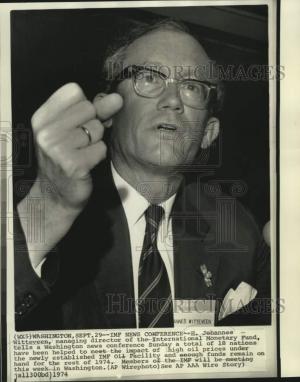Event Date:
Event Location:
- West Campus Point Faculty Housing Outdoor Plaza
Event Price:
Free
Event Contact:
Mattie Webb
On Saturday, March 4, the Center for Cold War Studies and International History (CCWS) and the Cold War Working Group (CWWG) will host an in-person workshop at the West Campus Point faculty housing community's outdoor plaza (11am-12:30pm). We will be reading and discussing a paper, "Forging an International Backstop: Commercial Banking, Foreign Policy, and the Empowerment of the IMF, 1973 – 1981," by Nick Cohen, a doctoral candidate in the UCSB History Department.
How were the practice and image of commercial banking reinvented alongside the expansion and empowerment of the International Monetary Fund in the decade preceding the global debt crisis of the 1980s? Historians of both business and foreign relations in the 1970s have rightly emphasized the instrumental role played by the Oil Shocks in facilitating the resurgence of global finance and remaking the global balance of power in an era of interdependence. Examining the history of US commercial banking alongside the rise of the IMF, this paper argues that global financialization was also contingent upon a sort of Polanyian double-movement, in which the explosion in the size and power of private international capital markets relied on the concurrent empowerment of the international institution meant to backstop such lending. In the wake of the first oil shock, commercial banks doubled down on the lucrative new business of lending to developing nations in the global south and eastern bloc eager for funds to cope with ballooning balance-of-payments deficits. In response to this same balance-of-payments problem, the IMF began to increase in size and capability through the introduction and gradual expansion of the so-called “Witteveen Facility.”
By examining political debates in the United States concerning the regulation of international finance this paper demonstrates that for US policymakers questions over US contributions to the IMF and the role of private American banks overseas were often one in the same. By the end of the 1970s, moreover, commercial bankers had become some of the most vocal advocates for expanding IMF resources. By examining archival material from the Carter administration and the IMF, the papers of notorious Citibank chief Walter Wriston, and congressional records, this paper straddles the line between political economy and diplomatic history.
Workshop attendees are encouraged to read Nick's paper in advance. They may gain access to it, and receive other information about the event, by contacting Mattie Webb at mattie@ucsb.edu.



